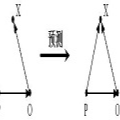The task of fully inductive link prediction in knowledge graphs has gained significant attention, with various graph neural networks being proposed to address it. This task presents greater challenges than traditional inductive link prediction tasks with only new nodes, as models must be capable of zero-shot generalization to both unseen nodes and unseen relation types in the inference graph. Despite the development of novel models, a unifying theoretical understanding of their success remains elusive, and the limitations of these methods are not well-studied. In this work, we introduce the concept of double permutation-equivariant representations and demonstrate its necessity for effective performance in this task. We show that many existing models, despite their diverse architectural designs, conform to this framework. However, we also identify inherent limitations in double permutation-equivariant representations, which restrict these models's ability to learn effectively on datasets with varying characteristics. Our findings suggest that while double equivariance is necessary for meta-learning across knowledge graphs from different domains, it is not sufficient. There remains a fundamental gap between double permutation-equivariant models and the concept of foundation models designed to learn patterns across all domains.
翻译:暂无翻译




